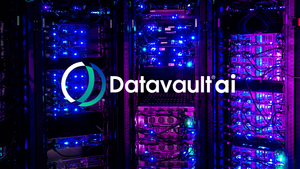Cleveland Forges Future with City-Wide AI Upskilling Initiative

Cleveland is embarking on a forward-thinking journey to equip its entire municipal workforce with essential artificial intelligence and data literacy skills, setting a precedent for large-scale AI adoption in local government. This strategic initiative, spearheaded by the city's Office of Urban Analytics and Innovation (Urban AI) and outlined in the "Cleveland Operational Strategic Plan," aims to revolutionize public service delivery, enhance operational efficiency, and proactively prepare its employees for an AI-driven future. While not a singular, immediate "AI training for all" rollout, the program represents a foundational commitment to building a data-savvy workforce capable of leveraging advanced technologies, including AI, to better serve its citizens. The move signifies a critical understanding that robust digital infrastructure and a skilled workforce are paramount to navigating the complexities and harnessing the opportunities presented by emerging AI capabilities.
Laying the Digital Foundation: Cleveland's Strategic Approach to AI Integration
At the heart of Cleveland's technology modernization efforts is the Office of Urban Analytics and Innovation (Urban AI), tasked with fostering data literacy, improving service delivery, and driving innovation across city departments. Urban AI provides continuous professional development through programs like the "ElevateCLE Innovation Accelerator," which focuses on practical tools and strategies to enhance work efficiency. These trainings cover crucial areas such as process mapping, Lean gap analysis, problem identification, and the development of meaningful Key Performance Indicators (KPIs) through Results-Based Accountability. While these might not be labeled "AI training" explicitly, they are fundamental in establishing the data-driven mindset and analytical capabilities necessary for effective AI integration and utilization.
The "Cleveland Operational Strategic Plan," released in March 2024, reinforces this commitment by detailing an objective to "strategically employ technology across operations to improve staff experiences and productivity." A key initiative within this plan involves piloting and then rolling out a comprehensive training program to all employees across city departments, potentially with tiered annual hourly requirements. This systematic approach signals a long-term vision for pervasive technological literacy that will naturally extend to AI. Currently, Cleveland is exploring specific AI applications, including a collaborative project with Case Western Reserve University and Cleveland State University to develop an AI model for identifying illegal dumping using smart cameras. Future considerations include leveraging AI for streamlining permit and license processing, analyzing citizen feedback for policy decisions, and deploying public-facing chatbots, drawing inspiration from similar initiatives in the state of Ohio. The city's recently relaunched 311 system, with its integrated website and customer service portal, already exemplifies a thoughtful application of technology to improve accessibility and responsiveness.
This proactive, foundational approach distinguishes Cleveland's initiative from simply adopting off-the-shelf AI solutions. Instead, it focuses on empowering employees with the underlying data literacy and process improvement skills that enable them to identify opportunities for AI, understand its outputs, and work effectively alongside AI tools. Initial reactions within the city government have included some skepticism regarding the justification and efficacy of new technology offices, underscoring the importance of demonstrating tangible results and value as the program progresses. However, the broader push for modernization and efficiency across all city operations indicates a strong mandate for these changes.
A New Market Frontier: Implications for AI Companies and Tech Innovators
Cleveland's ambitious AI upskilling initiative opens a significant new market frontier for artificial intelligence companies, tech giants, and agile startups. Companies specializing in government technology solutions, data analytics platforms, process automation software, and AI development frameworks stand to benefit immensely. This includes firms offering AI training modules tailored for public administration, ethical AI governance tools, and secure cloud infrastructure (e.g., Amazon (NASDAQ: AMZN) Web Services, Microsoft (NASDAQ: MSFT) Azure, Alphabet (NASDAQ: GOOGL) Google Cloud) capable of handling sensitive government data.
The competitive landscape for major AI labs and tech companies will likely intensify as more local governments follow Cleveland's lead. This initiative underscores a growing demand for vendors who can not only provide cutting-edge AI technologies but also offer comprehensive implementation support, training, and change management services tailored to the unique operational and regulatory environments of the public sector. It could lead to a disruption of existing products or services if traditional government software vendors fail to integrate robust AI capabilities or adapt their offerings to support large-scale AI literacy programs. Startups with innovative solutions for data quality, AI explainability, and specialized public sector AI applications (e.g., urban planning, waste management, citizen engagement) are particularly well-positioned to carve out significant market share. The strategic advantage will lie with companies that can demonstrate not just technological prowess but also a deep understanding of public administration challenges and a commitment to ethical, transparent AI deployment.
Cleveland's Blueprint: A Catalyst for Broader AI Adoption in Governance
Cleveland's initiative is a microcosm of a larger, burgeoning trend: the increasing integration of artificial intelligence into government operations worldwide. This program fits squarely into the broader AI landscape by emphasizing human capital development as a prerequisite for technological advancement. The impacts are potentially transformative: increased governmental efficiency through automation of routine tasks, more informed policy-making driven by data analytics, and significantly enhanced service delivery for citizens. Imagine AI-powered systems that can predict infrastructure failures, optimize public transport routes, or provide personalized, multilingual citizen support around the clock.
However, this ambitious undertaking is not without its challenges and concerns. The ethical implications of AI, particularly regarding bias and fairness, are paramount in public service. If AI systems are trained on biased historical data, they risk perpetuating or even amplifying existing societal inequalities. Privacy and security risks are also significant, as public sector AI often deals with vast amounts of sensitive citizen data, necessitating robust safeguards against breaches and misuse. Furthermore, concerns about job displacement due to automation and the need to maintain human oversight in critical decision-making processes remain key considerations. This initiative, while forward-looking, must actively address these issues, drawing comparisons to previous AI milestones where ethical considerations were sometimes an afterthought. Cleveland's approach, by focusing on training and literacy, suggests a proactive stance on responsible AI adoption, aiming to empower employees rather than replace them, and ensuring that "humans remain in the loop."
The Road Ahead: Future Developments and the AI-Empowered City
Looking ahead, the near-term developments for Cleveland's AI initiative will likely involve the phased rollout of the comprehensive training program outlined in the "Cleveland Operational Strategic Plan," building upon the foundational work of Urban AI. We can expect to see an expansion of training modules, potentially including more specific AI applications and tools as employees' data literacy grows. Partnerships with academic institutions, such as Cleveland State University's upcoming "AI for the Workforce: From Industry to Public Administration" microcredential in Fall 2025, will play a crucial role in providing specialized training pathways for public sector professionals.
In the long term, the potential applications and use cases are vast and exciting. Cleveland could leverage AI for more sophisticated urban planning, predictive policing, optimizing resource allocation for public services, and developing smart city infrastructure that responds dynamically to citizen needs. Challenges will undoubtedly include securing sustained funding, continuously updating training curricula to keep pace with rapid AI advancements, and effectively managing potential resistance to change within the workforce. Experts predict that cities like Cleveland, which invest early and broadly in AI literacy, will become models for efficient, responsive, and data-driven local governance. The next steps will involve not just implementing the technology but also fostering a culture of continuous learning and adaptation to fully realize the transformative potential of AI in public service.
Cleveland's AI Vision: A Model for Municipal Innovation
Cleveland's initiative to cultivate city-wide AI and data literacy represents a pivotal moment in the evolution of local government. The key takeaway is a clear recognition that successful AI integration is not solely about technology acquisition but fundamentally about workforce empowerment and strategic planning. By prioritizing foundational skills, the city is building a resilient and adaptable public sector capable of harnessing AI's benefits while mitigating its risks.
This development holds significant historical importance in the AI landscape, positioning Cleveland as a potential trailblazer for other municipalities grappling with how to ethically and effectively adopt AI. It underscores a shift from reactive technology adoption to proactive, human-centric innovation. The long-term impact could be a more transparent, efficient, and citizen-responsive local government, setting a new standard for urban administration in the 21st century. In the coming weeks and months, observers will be keenly watching the progress of the "Cleveland Operational Strategic Plan," the specific outcomes of pilot AI projects, and, critically, the ongoing engagement and upskilling of Cleveland's dedicated city employees. Their journey will offer invaluable lessons for cities worldwide.
This content is intended for informational purposes only and represents analysis of current AI developments.
TokenRing AI delivers enterprise-grade solutions for multi-agent AI workflow orchestration, AI-powered development tools, and seamless remote collaboration platforms.
For more information, visit https://www.tokenring.ai/.
More News
View More




Recent Quotes
View More
Quotes delayed at least 20 minutes.
By accessing this page, you agree to the Privacy Policy and Terms Of Service.